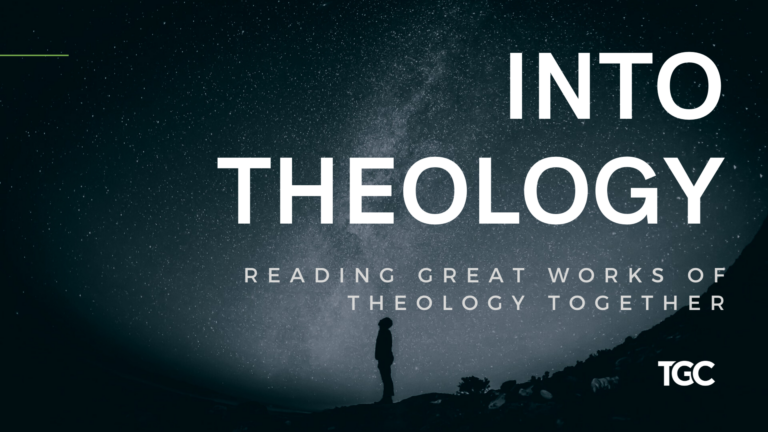The psalms repeatedly tell us to stop, cease striving, and behold God and his works. As Psalm 46 says, “Come, behold the works of the Lord” and “Be still, and know that I am God” (Ps 46:8, 10). In context, the psalmist faces the rage of the nations. The act to which God calls him is: beholding and being still.
This pattern exists elsewhere. In Psalm 27, evildoers pursue David. They want to destroy him. What does he ask for? Military reinforcements? A new weapon?
No. He says, “One thing have I asked of the Lord, that will I seek after: that I may dwell in the house of the Lord all the days of my life, to gaze upon the beauty of the Lord and to inquire in his temple” (Ps 27:4).
This gazing or beholding is an act—the act of waiting. Consider how we change in the Christian life. Paul explains, “And we all, with unveiled face, beholding the glory of the Lord, are being transformed into the same image from one degree of glory to another. For this comes from the Lord who is the Spirit” (2 Cor 3:18). We behold to be transformed.
Gazing at the beauty of the Lord is an act—the act of waiting.
Whether it is Paul, David, or the Sons of Korah, the Bible often tells us what we truly need is not to do more but to cease from our labours. “[S]trive to enter that rest,” says Hebrews 4:12.
The Bible tells us to stop, cease striving, and behold God and his works. This beholding or gazing or looking still requires from us the act of waiting. Be still, and know that he is God. That’s the act.
Slow down today. Stop attempting to do it all yourself. Or burn out tomorrow.
The logic of the Gospel demands that we admit our powerlessness and rely completely on Christ alone for our salvation. God demands much but gives us what He demands. The Father gives us Christ, “the power of God and the wisdom of God” (1 Cor 1:24).
Slow down today. Stop attempting to do it all yourself. Or burn out tomorrow.
Our hearts, as Augustine once said, are restless until they find rest in him. This rest does not mean no act happens. Psalm 46, for example, provides two commands to overcome fear of natural and national disasters.
First, “Come, behold the works of the Lord” (Ps 46:8). Second, “Be still, and know that I am God” (Ps 46:10). These may be some of the most difficult acts we ever accomplish. The tyranny of the present wants us to do more. The logic of the Gospel wants us to rest in God.
Remember his works in the past. Don’t imagine an uncertain future. Look back to a certain past of God’s power. Then cease striving. Be still. Know that God is God, and he can handle it.
As Peter says, “Humble yourselves, therefore, under the mighty hand of God so that at the proper time he may exalt you, casting all your anxieties on him, because he cares for you” (1 Pet 5:6–7).
Be still. Know that he is God. Give your anxiety to him. That’s the act.
Slow down today. You cannot do it all. Trying to do it all leads to burnout, exhaustion, and lack of motivation.
One thing is needed in the here and now, when all seems to be falling apart, when the centre cannot hold, and “Mere anarchy is loosed upon the world.”
And it is this: “Be still, and know that I am God.”








